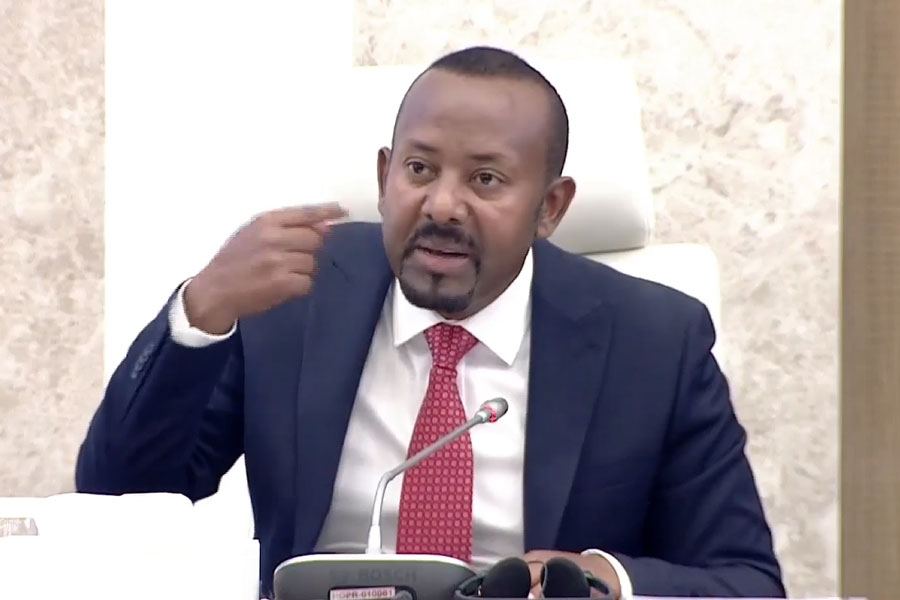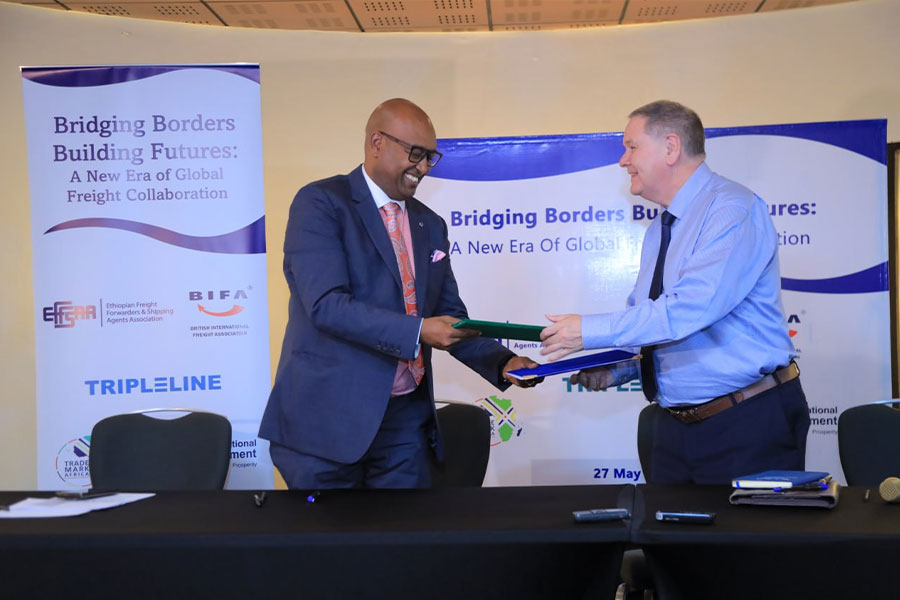

The Ethiopian Freight Forwarders & Shipping Agents Association (EFFSAA) and the British International Freight Association (BIFA) signed a memorandum of understanding (MoU) on May 27, 2025, at Hilton Hotel Addis Abeba, to address skills gaps, customs delays, and corridor inefficiencies in the freight and logistics sector. The partnership focuses on technical cooperation, training, and regulatory reform. With over 90pc of trade dependent on the Djibouti corridor, rising congestion, customs delays, and poor road infrastructure have inflated transport costs and disrupted supply chains. EFFSAA called for investment in alternative routes like Berbera, citing problems such as inconsistent documentation, outdated cargo systems, and lack of automation. BIFA Director General Steve Parker said the deal is directed towards aligning Ethiopia with global logistics standards, while Trademark Africa’s Matthew Crighton stressed the need for corridor integration and real-time data to cut border delays. EFFSAA President Dawit Woubishet and Trademark Africa Country Director Ewnetu Taye both underscored the need for committed reforms and international partnerships to improve transparency, automation, and customs capacity. Industry leaders view the agreement as a pivotal step toward a more efficient, transparent, and globally integrated logistics system, with automation, streamlined processes, and customs capacity building as key focus areas for future collaboration. Both associations are expected to begin implementing joint training and digital logistics initiatives in the coming months.
[ssba-buttons]